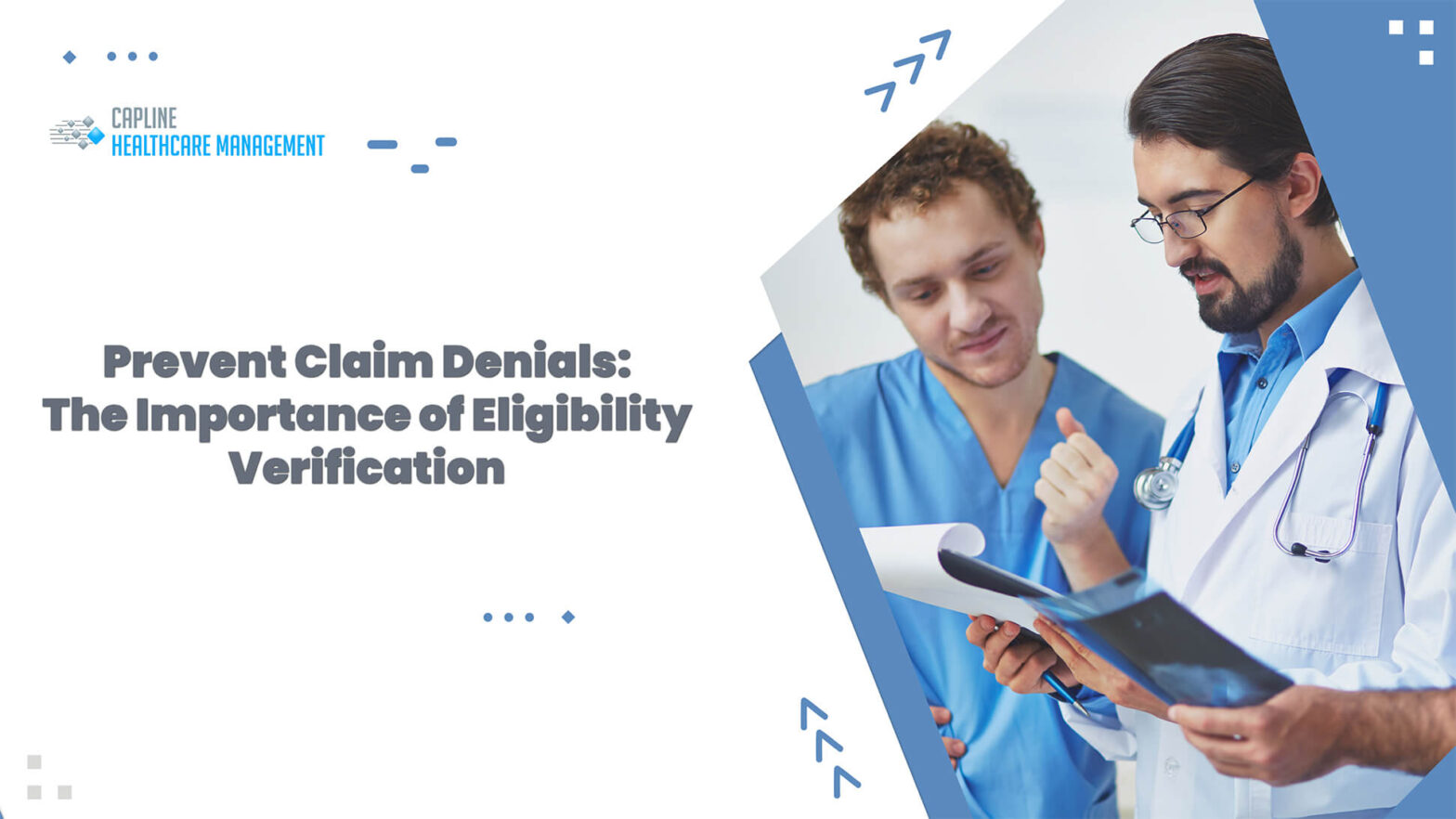Prevent Claim Denials: The Importance of Eligibility Verification
To easily navigate with constant changes and frequent updates in healthcare policies, it has become an absolute necessity for healthcare organizations to guide patients through the process seamlessly. In order to prevent claim denials & ensure that practices receive the highest possible reimbursement under the latest policies, this has become crucial.
According to HFMA.org, it has been noticed that eligibility verification has resulted in more than 75% of payers claiming rejection and denials. Moreover, refiling rejected claims can cost up to $50,000 to $250,000 in yearly net income for every 1% of claims denied.
That’s huge, right?
This is the reason why prioritizing eligibility verification is essential. It helps to minimize the rework, reduce errors that cause claim denials, and maintain client satisfaction.
Furthermore, in this article, we’ll explain the importance of eligibility verification and how it can help you to prevent claim denial.
Why Eligibility Verification Is Important?
Before any clinical treatments are given, front desk staff must confirm the patients’ insurance eligibility. It calls for skilled and seasoned experts who can effectively manage insurance concerns and complete the same processing with perfect accuracy. You have 4 primary reasons for which you should confirm eligibility. These include the following:
1. Increases Profitability
Following a correct and current verification guarantees a clean claim submission. Fewer claim denials assist healthcare revenue and keep its cash flows intact.
2. Productive Flow
Insurance helps a healthcare company to better manage its revenue cycle. A good patient experience depends on a smooth workflow, which also helps to reduce claim denials somewhat equitably.
3. Prevent Claim Denials and Rejections
When the verification process is accurate and efficient, clean claims increase and aid in lowering claim denials and rejections by means of increased submission.
4. Improved client satisfaction
Automated appointment scheduling, appropriate and prior verification about the patient’s eligibility, and simplified eligibility procedures, which prevent claim denials or resubmission improve the patient experience, and fairly raise the patient satisfaction levels.
When Can One Expect Eligibility Verification for the Benefits?
Verification of eligibility is best done before any clinical services or medical care are provided. Prior authorization is important for the patient to receive medical care. Failure of this can lead to a big hassle, resulting in late payments or claim denials, which affects the healthcare revenue cycle.
What Could Happen if Insurance Isn’t Verified?
When a patient has insurance and is covered, it is necessary to gather and verify their insurance coverage information before providing any medical facilities.
If the healthcare organization fails to do so, they’ll be left with an unpaid claim. This claim can either be from the insurance company or a patient who is unable to pay the bill within the time frame. This would have an impact on the healthcare organization’s revenue cycle.
Eligibility Verification Process In Medical Billing
With a simplified eligibility verification process, healthcare providers can submit clean claims that are mostly under their control. It is very important to prevent typical mistakes.
In turn, it meticulously validates the claim and avoids claim resubmission, lowering claim denials and rejections. It helps to receive the upfront payments and improves the patient experience to suitable levels, providing maximum patient satisfaction and better medical billing.
How to Easily Check a Patient’s Insurance Verification
To help your medical coding and billing team work well, follow these 5 simple steps to check a patient’s insurance and benefits:
- Insurance Verification Checklist
When checking a patient’s insurance, the front desk staff should ask for important details. This includes the Insurance ID, the person’s name and phone number, the address for claims, the name of the person who has the insurance, their relationship to the patient, the policy’s valid dates, what services are covered, the status of the coverage, and whether any special authorization is needed. Make sure to collect and record all this information accurately. - Patient’s Insurance Card Copy Procurement
First and most importantly, have a copy of the patient’s insurance card acquired. The electronic health record should have a correct and current copy of the front and rear sides of the card for future backup and reference should any mistakes arise whilst storing insurance data. - Contact the Insurance Provider
It’s a good idea to call the insurance company to double-check the information on the insurance card. Sometimes, changes happen even after the card is issued. You can call the number on the card or use your EMR and billing system to contact large insurance companies. - Record Details Carefully
Make sure staff are well-trained to write down patient information accurately. Even a small mistake can lead to claim denials or delays in payment; sometimes, the claim might not be paid. - Regularly Follow Up With the Patient
If there are any questions or issues with the insurance, don’t hesitate to reach out to the patient. A quick phone call or email through the patient portal can keep them informed and help avoid unexpected costs.
Conclusion
Medical eligibility verification service provides a skilled team with extensive experience and deep knowledge to help you streamline your insurance eligibility verification process. With the help of hiring or outsourcing to a reliable eligibility verification (EV) service provider like Capline Healthcare Management, you can ensure accurate and efficient insurance verification, reduce claim denials, and focus on providing quality care.
Our experts ensure that your claims are filed correctly to prevent claim denials, which helps maintain smooth cash flow, enhances patient satisfaction, and improves your revenue cycle management. With our support, you can focus on other aspects of your practice while we handle the complexities of insurance verification, making sure everything runs efficiently and effectively.




